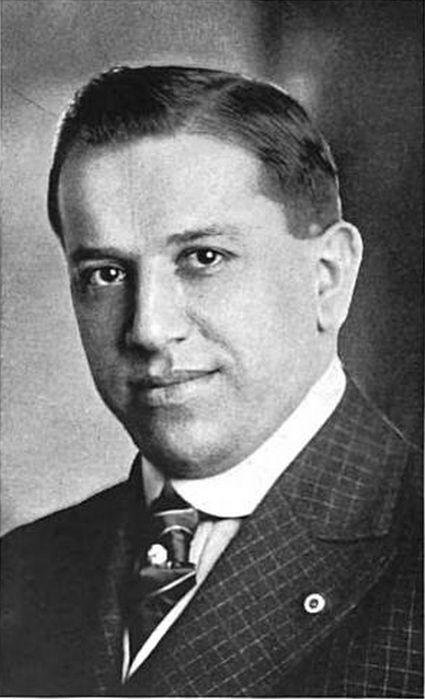The 2016 NBA Finals will go down, rightfully, as one of the all-time greatest moments in Cleveland sports history. From the Cavaliers’ improbable series comeback and dramatic Game 7 win to LeBron James’ instantly famous block and the glory of the city’s first major sports championship in 52 years, it was a thing of beauty, as Donald Trump might say. But for all the premature sepia-toned nostalgia, it’s worth remembering that the title isn’t the city’s first national basketball championship.
That bit of history, along with credit for helping basketball catch on as a professional sport in the U.S., belongs to the Cleveland Rosenblums.
How’d a team with such a name win such a title? In the 1920s, clothing store owner Max Rosenblum founded a basketball team and named them—in a stroke of personal-branding genius—the Cleveland Rosenblums. (The team would later be called the Rosenblum Celtics). After Rosenblum also helped create the American Basketball League in 1925, his team became the league’s first juggernaut, winning the national basketball title in 1926, 1929, and 1930.
When the Rosenblums won their first title in 1926, beating the Brooklyn Arcadians 23–22, the New York Times described the game and its wrenching ending:
The Rosenblums came from behind in the first period of of the men’s game, and again in in the second period, when the Brooklyn team rallied. The crowd of 2,000 spectators was roused to a high pitch of excitement in the final seconds of the game when Conaty, left guard for Brooklyn, had a chance to tie the score when he made a shot from the foul line. Conaty failed.
To spectators and sports writers, the team’s revolutionary basketball prowess was obvious, if “bewildering.” On Jan. 26, 1930, the Atlanta Journal-Constitution wrote, “this great team demonstrates to perfection how the game is played in the big leagues.” The paper reported:
Instead of a mad rush up and down the floor with much running and wild shooting, as in the case of the average school and independent team, they will demonstrate a most bewildering and baffling passing attack calling for a player to cut for the basket only when everything is all set and a play is executed, freeing a man for a shot. Big Dutch Dehnert, regarded by basketball fans all over the country as the greatest player of all time, is the pivot man of the Rosenblum’s passing attack. His skill and dexterity receiving and passing the ball is wonderful.
Though calling Dehnert the GOAT of a nascent league in a sport that was only slightly older may seem meaningless, the 6-foot-1, 210-pound Dehnert is credited with “perfecting the pivot play,” according to the Naismith Memorial Hall of Fame.
So the Cleveland team was winning championships, but it was also leaving its mark on the game in more lasting ways. An article from the Feb. 9, 1927, issue of the Lancaster Daily Eagle touted Cleveland as one of the teams helping establish basketball as a sport.
Basketball seems to be the one new professional sport, as organized on a national basis, that has a chance to live. The cage game not only will continue but already is on a paying basis. The pro game thrived for years in the east but is a new venture in the middle west and this is but the second season of the first well organized league of anything approaching national scope.
In fact, the Rosenblums were widely considered to be a major force in growing the game of basketball. The Atlanta Journal-Constitution also wrote:
Appearance of the Cleveland Rosenblums, world’s champion basketball team, in Atlanta on February 6, undoubtedly will do more toward stimulating basketball in Atlanta than any other one thing. Everywhere the Rosies have appeared during the past two seasons the game of basketball has taken a new lease on life.
Though the Rosies folded at the end of 1930 as the Great Depression ravaged game attendances and cut into profits, the team’s impact on basketball in the U.S. remains. While there’s no denying the significance of the Cleveland Cavaliers’ 2016 NBA Championships for the city of Cleveland and its fans (if you need any proof, just listen to this interview with Cleveland superfan and author Scott Raab), there’s another championship Cleveland basketball team worth remembering that helped lay the groundwork for the city’s current basketball glory.
